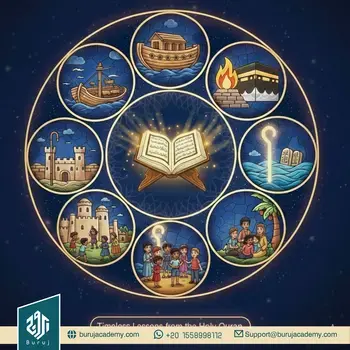Mastering the language of the Qur’an and the Sunnah is a profound spiritual and academic journey for any Muslim or student of Islamic history. While the language is known for its depth and complexity, finding the easiest way to learn Arabic involves a blend of sincere intention, modern resources, and a structured approach. By focusing on fundamental building blocks like the alphabet and core vocabulary, learners can unlock a direct connection to divine guidance and the rich scholarly traditions of the Muslim world.
This guide provides a comprehensive roadmap for beginners, highlighting how consistency and technology can simplify the learning process. From setting clear goals and practicing daily to utilizing online courses and community support, you will discover that the easiest way to learn Arabic is within your reach. Whether your goal is to understand Islamic texts in their original form or to communicate more effectively, these practical steps will help you achieve fluency with patience and persistence.
Why Learn Arabic?
Learning Arabic is fundamental for Muslims and anyone interested in Islamic knowledge because it is the language of the Qur’an, the Sunnah, and the entire Islamic scholarly tradition. Arabic is not merely a means of communication but the very medium through which divine guidance was revealed to Prophet Muhammad (peace be upon him). This unique status makes The easiest way to learn Arabic essential for figuring out the most suitable learning method.
It opens doors to a deeper understanding of the Qur’an, Islamic teachings, and the rich heritage of the Muslim world. The easiest way to learn Arabic is to approach it with sincere intentions, perseverance, and the right resources.
The Importance of Arabic in Islamic Studies
- Key to the Qur’an and Sunnah: Arabic is essential for understanding Islam’s foundational texts.
- Authentic Knowledge: Mastery of Arabic terminology allows for direct access to Islamic knowledge.
- Recommended by Scholars: Scholars like Imam Ash-Shafi’i emphasized the importance of learning Arabic for all Muslims.
Benefits of Understanding the Qur’an and Islamic Texts
- Direct Connection: Access the Qur’an and Hadith in their original language.
- Spiritual Growth: Deepen your relationship with Allah and your understanding of Islam.
- Accurate Comprehension: Avoid misunderstandings that can come from translations.
The Easiest Way to Learn Arabic – Step-by-Step Guide
Learning Arabic is a rewarding journey that opens the door to understanding the Qur’an, Islamic knowledge, and a rich global culture. With clear intentions, consistency, and the right methods, anyone can make steady progress.
Step 1: Set Clear Intentions and Begin with Du’a
Before starting, purify your intention (niyyah) for learning Arabic. Whether your goal is to understand the Qur’an, deepen your Islamic knowledge, or communicate with Arabic speakers, keep your purpose clear and sincere.
Make du’a regularly, asking Allah for ease, consistency, and understanding. Remind yourself that learning Arabic is an act of worship when done for the sake of Allah. This spiritual connection will help you stay motivated during challenges.
Step 2: Build a Strong Foundation by Learning the Arabic Alphabet
Begin with the Arabic alphabet, as it is the key to reading and pronunciation.
- Learn each letter along with its correct sound and articulation.
- Practice how letters change shape depending on their position in a word.
- Use flashcards, beginner videos, and writing exercises to reinforce recognition.
- Practice reading and writing daily, even for short periods, to build confidence.
Mastering the alphabet early will make all future learning much easier.
Step 3: Learn Basic Vocabulary and Essential Grammar
Once you are comfortable with the alphabet, start building your vocabulary and grammar skills.
- Focus on commonly used Arabic words, especially those found in daily conversation and Islamic texts.
- Learn basic grammar rules, such as sentence structure, gender, and simple verb forms.
- Practice forming short, meaningful sentences instead of memorizing rules in isolation.
This step allows you to understand how Arabic works and begin expressing simple ideas.
Step 4: Practice Reading, Writing, and Speaking Consistently
Regular practice is essential for real progress.
- Set aside a fixed time each day or week for Arabic study.
- Read simple Arabic texts, such as children’s books or short passages.
- Write short sentences or paragraphs to strengthen retention.
- Practice speaking with classmates, teachers, or language partners.
Consistency matters more than duration—short, frequent sessions are more effective than occasional long ones.
Step 5: Use Technology and Online Resources to Accelerate Learning
Take advantage of modern tools to support your learning.
- Enroll in structured online courses to stay organized and accountable.
- Use language-learning apps and digital dictionaries to reinforce vocabulary.
- Listen to Arabic podcasts, audiobooks, and lectures to improve listening skills.
- Watch Arabic videos with subtitles to enhance comprehension and pronunciation.
These resources help expose you to real Arabic usage and reinforce what you study.
Read Also: Beginner’s Guide to Modern Standard Arabic
Final Advice: Stay Patient and Trust the Process
Learning Arabic takes time, but every small step brings you closer to fluency and deeper understanding. Stay patient, renew your intention often, and remember that consistency and sincerity will lead to success—by the permission of Allah.
The Easiest Way to Learn Arabic – Recommended Resources
Learning Arabic becomes much easier when you combine the right resources with a consistent study approach. Below are some of the most effective tools and methods to help beginners and intermediate learners build strong Arabic skills.
Best Online Courses and Apps
- Enroll in reputable platforms that specialize in Arabic language instruction (such as Buruj Academy).
- Take advantage of well-structured curricula that guide you from beginner to advanced levels.
- Benefit from expert instructors, regular feedback, and flexible learning schedules that fit your routine.
- Use mobile apps alongside courses to reinforce vocabulary, grammar, and daily practice.
Useful Books and Dictionaries
- Start with beginner-friendly textbooks, such as the Madinah University series, which focus on clear grammar progression and practical usage.
- Use Arabic–English dictionaries (both print and digital) to understand word meanings and contexts accurately.
- Maintain a personal vocabulary notebook to record new words, phrases, and example sentences for regular review.
- Revisit and revise your notes frequently to strengthen long-term retention.
YouTube Channels and Podcasts for Arabic Learners
- Follow educational YouTube channels that offer lessons on pronunciation, grammar rules, reading, and everyday conversation.
- Watch native speakers to improve accent, intonation, and listening comprehension.
- Listen to Arabic podcasts and audiobooks to train your ear and build listening confidence.
- Explore content in both Modern Standard Arabic and regional dialects to gain broader linguistic and cultural exposure.
- Use subtitles and transcripts when available to enhance understanding and learning efficiency.
Subscribe on our Youtube Channel for more educational videos
Practical Tips for Success in Learning Arabic
Mastering Arabic requires a blend of disciplined habits and active social engagement. The following strategies provide a roadmap to help you build a sustainable routine and leverage community support for faster fluency.
Creating a Consistent Study Routine
- Set Clear, Achievable Goals for Your Learning Journey:
Define what you want to achieve with your Arabic learning. For example, your goals could be:- Learning the Arabic alphabet within two weeks
- Mastering 50 new vocabulary words each month
- Being able to read simple Qur’anic verses after three months
Clear goals give you direction and a sense of accomplishment as you progress.
- Stick to a Regular Study Schedule (e.g., 30 Minutes Daily):
Consistency beats intensity. Even 30 minutes a day is more effective than long, infrequent sessions. Regular practice helps reinforce memory, improves retention, and builds momentum. Try to study at the same time daily to make it a habit. - Track Your Progress to Stay Motivated:
Keep a journal or use apps to log your study time, new words learned, or grammar concepts mastered. Seeing your progress visually can boost motivation and help you identify areas needing more focus.
Joining Study Groups or Local Classes (The Easiest Way to Learn Arabic)
- Join Local Classes or Online Study Groups for Support and Motivation:
Learning with others creates accountability and makes the process more enjoyable. Study groups offer a platform to ask questions, share resources, and celebrate milestones together. - Practice Speaking with Others to Build Confidence:
Arabic pronunciation and conversational skills improve significantly when you speak regularly. Don’t be afraid to make mistakes—speaking with peers or native speakers helps you gain fluency and overcome hesitation. - Ask Questions and Share Experiences to Enhance Learning:
Engaging actively by asking questions clarifies doubts and deepens understanding. Sharing your learning experiences can inspire others and reinforce your own knowledge. - Travel to Arabic-Speaking Countries if Possible for Real-Life Practice:
Immersion through travel accelerates learning by forcing you to use Arabic in daily situations. - Engage with Native Speakers to Improve Conversational Skills:
Overcoming Common Challenges in Learning Arabic
Mastering Arabic is a deeply rewarding endeavor, yet it often presents unique hurdles that can test a learner’s resolve. By understanding these common obstacles and adopting strategic approaches, you can transform these challenges into stepping stones toward fluency.
1. Dealing with Difficult Grammar and Pronunciation
- Accept That Mistakes Are Part of Learning:
Mistakes are natural and essential for improvement. Embrace errors as learning opportunities rather than setbacks. - Practice Pronunciation and Grammar Regularly:
Repetition is key. Use audio resources to mimic pronunciation and do grammar exercises consistently to internalize rules. - Seek Feedback from Teachers or Fluent Speakers:
Constructive feedback helps you correct errors early, preventing bad habits and accelerating progress.
Check out this article about Arabic Grammar Read now
2. Staying Motivated and Disciplined
- Celebrate Small Achievements to Stay Encouraged:
Recognize milestones like learning a new verb tense or holding your first conversation. Celebrations keep your enthusiasm alive. - Remind Yourself of the Spiritual and Practical Benefits:
Reflect on how learning Arabic connects you more deeply with the Qur’an and Islamic knowledge. - Maintain a Routine Even When Motivation Dips:
Discipline sustains progress during low-motivation periods. Having a set routine helps you keep going even when enthusiasm wanes.
3. Patience and Persistence in Your Learning Journey
- Understand That Learning Arabic Is a Gradual Process:
Arabic is a rich and complex language; mastery takes time. Accept that progress may be slow initially and that this is normal. - Be Patient with Your Progress:
Avoid comparing yourself to others. Focus on your own steady improvement. - Stay Persistent and Keep Your Long-Term Goals in Mind:
Persistence is the key to success. Keep your ultimate goals visible—whether spiritual growth, academic achievement, or career advancement—to stay motivated through challenges.
If you apply these practical tips consistently, you will find that the easiest way to learn Arabic becomes not only achievable but also an enjoyable and rewarding journey. Remember, every small step brings you closer to fluency and deeper connection with the language and culture.
Conclusion – Start Your Journey to Learn Arabic Today
- Combine sincere intention, structured study, and consistent practice for the easiest way to learn Arabic.
- Use a mix of traditional and modern resources for comprehensive learning.
- Immerse yourself in the language, seek support, and be patient with your progress.
- Unlock the treasures of Arabic terminology and gain direct access to the beauty of the Qur’an and Islamic knowledge.



